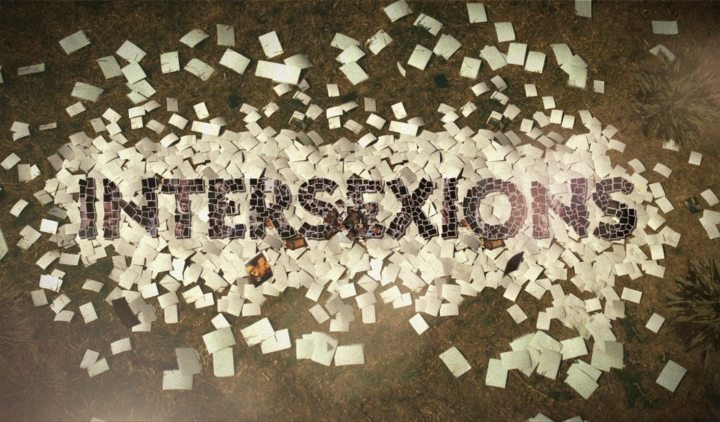Maverick Life
An Intersexion of education and entertainment

The award-winning South African drama Intersexions is back for another season. GREG NICOLSON looks at what made it so successful, how it balanced entertainment with HIV/Aids education, and what you’re in for in the new season.
A public relations consultant. A video girl. An actor. An activist. A prostitute. A choirmaster. A lawyer. A journalist. A truck driver. A textile company owner. A student. A restaurant owner. A village girl. A village boy. “Our lives intersect in a vast network which connects us all. In sex, there are no strangers,” opened Akin Omotoso every Tuesday night on SABC1.
The first season of the award-winning South African drama Intersexions captivated TV viewers as it explained the link between our sexual partners and our partners’ past sexual partners. Intersexions returns this week on SABC 1 to continue to educate viewers on issues broadly related to sexual behaviour and HIV/Aids.
“Educate” is too blatant a word. After HIV/Aids-related programmes like Soul City, Intersexions had to entertain viewers who were de-sensitised by the almost never-ending attempts at sexual education. In each of the 26 episodes, the first season built on different characters forming a romantic or sexual link in a chain binding all South Africans. It focused on love, loss, heartbreak, joy, friendship, hatred, honesty and deceit. Believable characters acted out situations anyone could relate to, with each episode teasing you with what might come next.
“The main challenge basically was entertainment. As filmmakers we are entertainers so we had to prioritise that while not forgetting about HIV,” Zuko Nodada, who directs three Intersexions episodes in season two, tells Daily Maverick. “With a lot of the recent stuff, you might as well put a teacher in front of the black board,” he says. But entertainers still have a role to educate the public and find morality in their work, he adds.
The issues Intersexions focuses on come from a clear desire to face South Africa’s challenges. The show is the product of a collaborative partnership between SABC 1, SABC Education and Johns Hopkins Health and Education in SA (JHHESA). JHHESA, currently funded by the US President’s Emergency Plan for Aids Relief (Pepfar), has spoken to over 2,000 people in 39 communities to understand their stories and their perceptions on current issues. It combined that research with a national communication survey of 10,000 people and fed the results to the Intersexions creative team.
JHHESA managing director Richard Delate explains the process. The non-profit organisation gives its information to the producers and scriptwriters. Every script is then pre-tested through a focus group before being passed on to the production team. Once an episode is complete, JHHESA then tests it with another focus group before it’s aired.
The key to the show’s success and the reason it won 11 South African Television and Film Awards, a Peabody Award, and an Africomnet Best Mass Media Award 2012, is that it finds the delicate point where issues that concern the health of the country and those of day-to-day life meet. The involvement of different stakeholders doesn’t limit the creative side, says Nodada. “As a director they don’t limit you… No one imposes and you have your own identity as a director.”
“The SABC has their own agenda,” says Delate, “which is audiences, entertainment and ratings. SABC Education brings the education perspective and the production company (Quizzical Pictures and AntS Multimedia) are concerned with issues around aesthetics. So obviously there is at times a lot of tension around the room.” But that tension is what creates Intersexions, says Delate.
The product is a show that magically seems to cut across different cultures and speak to different communities, even in fractious South Africa. “People connect with it because it’s what people do, it’s what people know,” says Nodada. “Sometimes when you tell stories you forget that you are telling stories for our communities. In this case we tell stories that a person in a backroom of Soweto will understand, a person in Alexandra will understand, a person in Sandton will understand,” he adds.
For Nodada, the idea of a South Africa where one can’t understand the other is outdated. He uses his own background as an example: he lives in Soweto but grew up in the rural Eastern Cape before studying at a top university and working in the suburbs. “We are brothers and sisters but sometimes ignorance kills that.” The idea is a key feature of Intersexions and defies those who want to uphold differences above commonalities.
The show’s first season may have exhausted one way of shifting perceptions on relationships and sexual behaviour, but it hopes to continue telling relatable stories about important issues. Delate says it will focus more on present behaviour rather than the impact of sexual partners. Intersexions 2 will look at “what is done in the present and what puts you at risk in the present.” Expect stories on polygamy, sugar daddies, drug and alcohol abuse and changing values.
The cast of the show has totally been revamped and will feature over 100 new actors chosen from over 5,000 that auditioned. If last season is anything to go by, the chances are that no matter who you are, you’ll see at least a part of yourself in their performances. DM


















 Become an Insider
Become an Insider